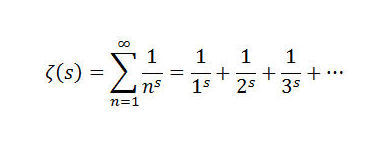Speeding up the calculation of .

A year ago, I have posted this article, it states that if you want the correct result close by you should calculate about 100 terms which is huge by hand (Euler hadn't W|A to help him at the time he Calculated it ).
A way to speed up the convergence is to use , our goal is to see how much is it faster. We set :
Prove or disprove that : This means that converge a lot quicker than .
Image credit : Recovering Lutheran blog .
No vote yet
1 vote
Easy Math Editor
This discussion board is a place to discuss our Daily Challenges and the math and science related to those challenges. Explanations are more than just a solution — they should explain the steps and thinking strategies that you used to obtain the solution. Comments should further the discussion of math and science.
When posting on Brilliant:
*italics*or_italics_**bold**or__bold__paragraph 1
paragraph 2
[example link](https://brilliant.org)> This is a quote# I indented these lines # 4 spaces, and now they show # up as a code block. print "hello world"\(...\)or\[...\]to ensure proper formatting.2 \times 32^{34}a_{i-1}\frac{2}{3}\sqrt{2}\sum_{i=1}^3\sin \theta\boxed{123}Comments
Are there any established series that converge faster than (bn)?
Log in to reply
Yes of course, check this page.
Euler did not know all these fancy series (but the first) but he managed to get 20 decimals using the Euler-Maclaurin summation formula which is also better than bn.
Log in to reply
Alright thanks!
@Pratik Shastri @Ronak Agarwal @Kishlaya Jaiswal @Azhaghu Roopesh M
@Pranav Arora ,@Michael Lee ,@Tunk-Fey Ariawan, @Michael Mendrin (and all calculus guys). What do you think of this problem ? I can post hints if you want.
Another thing, what kind of calculus problems do prefer ? AFAIS, it is integration.